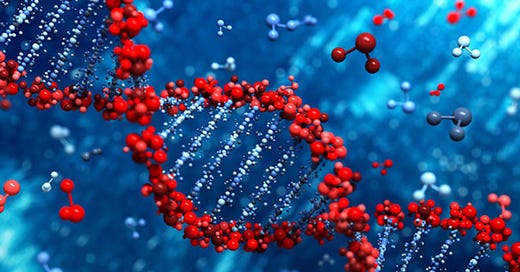Even my biggest fans are often dismayed by my Szaszian skepticism of psychiatry. How can I be so at odds with the science? Of late, however, mainstream science journalism suddenly sounds Szaszian. Nature just published Moncrieff et al.’s major study, “The Serotonin Theory of Depression: A Systematic Umbrella Review of the Evidence,” debunking the theory that depression is caused by serotonin deficiency. Science journalists seem convinced.
The original paper starts with critical background:
The idea that depression is the result of abnormalities in brain chemicals, particularly serotonin… has been influential for decades, and provides an important justification for the use of antidepressants… Surveys suggest that 80% or more of the general public now believe it is established that depression is caused by a ‘chemical imbalance’ [15, 16]. Many general practitioners also subscribe to this view [17] and popular websites commonly cite the theory [18].
The paper goes on to conclude:
Our comprehensive review of the major strands of research on serotonin shows there is no convincing evidence that depression is associated with, or caused by, lower serotonin concentrations or activity. Most studies found no evidence of reduced serotonin activity in people with depression compared to people without, and methods to reduce serotonin availability using tryptophan depletion do not consistently lower mood in volunteers. High quality, well-powered genetic studies effectively exclude an association between genotypes related to the serotonin system and depression, including a proposed interaction with stress.
The authors also step back and criticize the whole “chemical imbalance” view of depression. Hear this disapproving passage:
The chemical imbalance theory of depression is still put forward by professionals [17], and the serotonin theory, in particular, has formed the basis of a considerable research effort over the last few decades [14]. The general public widely believes that depression has been convincingly demonstrated to be the result of serotonin or other chemical abnormalities [15, 16], and this belief shapes how people understand their moods, leading to a pessimistic outlook on the outcome of depression and negative expectancies about the possibility of self-regulation of mood [64,65,66]. The idea that depression is the result of a chemical imbalance also influences decisions about whether to take or continue antidepressant medication and may discourage people from discontinuing treatment, potentially leading to lifelong dependence on these drugs [67, 68].
Though I’d like to claim vindication, that wouldn’t be honest. “Does serotonin deficiency cause depression?” is a legitimate empirical question. A legitimate empirical question where I have zero independent knowledge.
The question, “Is depression caused by a chemical imbalance?,” in contrast, is a fake empirical question. Why? Because it is a thinly-veiled tautology. Depression is bad, right? We’re all made of chemicals, right? One scientific-sounding synonym for “bad” is “imbalanced,” right? So when psychiatrists say, “Depression is caused by a chemical imbalance,” it’s basically true by definition.
If this seems overly cynical, listen to what The Comprehensive Textbook of Psychiatry tells us about lithium:
Theories abound, but the explanation for lithium’s effectiveness remains unknown. Patients are often told it corrects a biochemical imbalance, and, for many, this explanation suffices. There is no evidence that bipolar mood disorder is a lithium deficiency state or that lithium works by correcting such a deficiency.
The upshot: No matter how powerfully Moncrieff et al. demonstrate the irrelevance of serotonin for depression, they can’t debunk the chemical imbalance “theory” because it’s not a theory at all.
What they could and should say, rather, is that presenting tautologies as scientific fact is charlatanism. Furthermore, a profession that widely tolerates such charlatanism merits broad skepticism - a skepticism Szasz wisely cultivated for his whole career. To be fair, you could object that charlatans are often skeptical of rival charlatans. But once you set aside unjustified deference for the psychiatric profession and judge Szasz’s arguments on their merits, you will not wish to so object.
P.S. Looking forward to meeting many of you in Princeton and NYC. Wish me luck on my comedy premiere; I’ll need it! Or do they say “Break a leg” in comedy?
Subscribe to Bet On It
Caplan and Candor

















I kind of but not entirely agree.
"Chemical imbalance" could be interpreted so broadly as to be tautological. But it can also plausibly be interpreted as meaning "caused by an excessive or insufficient concentration of an identifiable chemical and ameliorable by addressing that excess or deficit."
The latter definition is still extremely broad but not so much so as to be meaningless. For example, it would not cover an hypothetical explanation of depression as being caused by widespread cell death in a brain region due to traumatic injury.
Now if you want to mock psychiatrists for tautological claims then look at forensic psychiatrists who try to support an insanity defense by claims "the defendant only did <bad thing> because of <brain condition>!"
Well, of course, he did! Everything everybody does they do because of a brain condition! "But I have this paper that claims to identify the brain condition!" So why does that matter? The brain condition must exist a priori. Why does the validity of an insanity defense depend on whether science has identified it yet?
That is not to say that there cannot be valid insanity defenses. But the whole "it wasn't me, it was me brain that made me do it!" is not one of them.
If the brain were *purely* a chemical soup, you'd be completely right, but we're not "merely made of chemicals." The brain uses electrochemical signaling and has a plastic physical structure. (Of course, that structure is made of chemicals, but structure is not purely defined by its chemical ratios/balance.) Assuming a materialist model of the brain (as anyone in their right mind should), you could assess a psychiatric condition by focusing on the brain's (electro)chemical state at a given time, such as in the serotonin hypothesis, but you could also focus on its neuronal structure.
Obviously the structural and the electrochemical are intimately bound up, but saying "an ongoing chemical imbalance causes structural abnormalities that lead to depression" is different from "an ongoing chemical imbalance in itself leads to depression," which is different from "a temporary chemical imbalance causes a structural abnormality, but the chemical imbalance itself does not persist," or "the modern world filled with tons of electronic devices messes with the electrical signaling in our brain." (I wouldn't believe the last point, but it's still a testable hypothesis.)
That said, I think your point is important! Much of psychiatry feels very circular and truly is in the dark about ultimate causes, and we have to hold it (any many other disciplines) to higher standards.